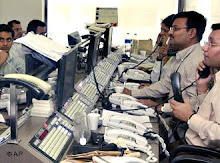Is investing in emerging market stocks more high risk than ever? Or are the emerging market (EM) economies more stable than those in the developed western economies? How the world has changed since the credit crunch first began to bite.
A lot of Western economists have argued the EMs will be sucked into this global recession - and can only keep growing if the developed western economies do also. This is now looking less and less likely. The emerging markets now have huge domestic markets and do a more and more of their business with each other and not the West. Brazil's biggest trading partner is now China, rather than the US.
The world's top 10 performing stock indices so far this year are based in an emerging market economy. Last week, the MSCI index of all EMs climbed above the level it was at in mid-September 2008 when global markets really hit the skids.
The FTSE100 and S&P500 are both still 20pc shy of their mid-September 2008 levels despite massive financial expansionary stimulus packages from the US and UK Governments.
The Chinese and Indian stock markets have gained over 70pc during 2009 already and may look to have risen too highly, too quickly. The Chinese stock index now has a price-earnings multiple in the mid-30s which look high. But contrast that with the UK which has a price-earnings valuation above 50 implying UK stocks are grossly over-valued compared to the performance of the underlying companies.
The EM nations now appear to be in a far better financial state than the Western economies they used to depend upon. The average sovereign debt burden of the G7 nations will increase to 114pc of GDP by 2014, according to the IMF. With the main EM economies predicted to have only a 35pc sovereign debt ratio.
So, if you are considering investing in emerging market stocks you should also consider who now in the world economy sits in the driving seat. It's going to be a bumpy ride for investors but with many opportunities now emerging.
Subscribe to:
Post Comments (Atom)



No comments:
Post a Comment